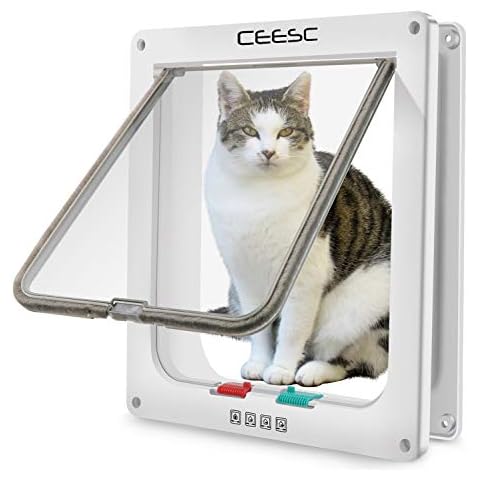Sorting Out the Cat Doors That Are Right for Your Pets
Introduction
If you're a cat owner, you know the struggle of trying to keep your feline friend indoors while also allowing them the freedom to come and go as they please. A cat door can be the perfect solution to this problem, but with so many options on the market, it can be difficult to know which one to choose. In this article, we'll provide some tips and considerations to help you make an informed decision about the best cat door for your home and your furry friend.
Types of Cat Doors
Before you start shopping for a cat door, it's important to understand the different types that are available. The most common types of cat doors are:
-
Manual flap doors: These are the most basic type of cat door, and they consist of a simple flap that your cat can push open with their head or body. These doors are typically the least expensive option, but they can be drafty and may not provide the best insulation.
-
Electronic doors: These doors use a magnetic or electronic key to unlock the door and allow your cat to pass through. These doors are more secure and can be programmed to only allow access to certain cats, but they can be more expensive and may require batteries or electricity to operate.
-
Automatic doors: These doors use sensors to detect when your cat is approaching, and they automatically open to let them pass through. These doors are the most convenient and secure option, but they can also be the most expensive.
Factors to Consider
When choosing a cat door, there are several factors to consider. Here are a few things to keep in mind:
-
Size: The first and most important factor to consider is the size of the door. You'll need to measure your cat to make sure the door is the right size for them. If the door is too small, your cat may have difficulty getting through it, and if it's too large, it may be drafty and let in unwanted pests.
-
Material: Cat doors are typically made of plastic or metal, and each material has its own benefits and drawbacks. Plastic doors are typically cheaper and lighter, but they may not be as durable as metal doors. Metal doors are more durable, but they can be heavier and more expensive.
-
Location: Another important consideration is where you'll install the door. If you're planning to install the door in a wall or door, you'll need to make sure the door is the right size and thickness to fit the opening. If you're planning to install the door in a window, you'll need to make sure the window is large enough and the door is designed for that type of installation.
-
Security: If you're concerned about security, you may want to consider a door with an electronic or automatic locking mechanism. These doors can be programmed to only allow access to certain cats, and they can help prevent unwanted animals or intruders from entering your home.
-
Energy efficiency: If you're concerned about energy efficiency, you may want to choose a door with good insulation to help keep your home warm in the winter and cool in the summer.
Conclusion
Choosing the right cat door can be a daunting task, but with a little research and consideration, you can find the perfect door for your feline friend and your home. Consider the types of doors available, the size and material of the door, the location where you'll install it, and any security or energy efficiency concerns you may have. With the right cat door, you can give your cat the freedom to come and go as they please, while still keeping them safe and secure.











